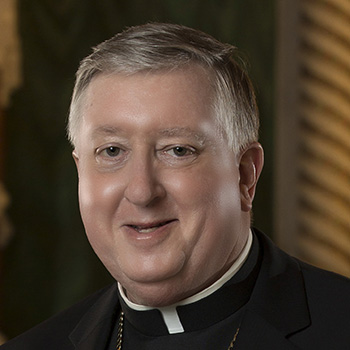SERVE THE LORD WITH GLADNESS | Our country has, and will always have, work to do to live up to its promise
In readings this week from Hosea, we see a similar balance of promise and flaws in Israel

Dear brothers and sisters in Christ,
We celebrate Independence Day this week! It’s a good time to think about the promise — and the challenges — of our country.
Providentially, we’re reading from the prophet Hosea this week. He spoke to Israel about the promise of their identity as a nation, as well as their characteristic flaws.
Hosea is one of the key figures who describes the relationship between God and Israel in terms of a marriage. That’s the promise of Israel’s identity: They — as a nation, not just as individuals — were specially chosen by God. God intends to give the world a gift through them.
The problem is: They have a hard time living up to the promise of their identity.
Ancient Israel had a tendency to assume that, because they were chosen, they were “golden” — nothing could ever go wrong. But God expected them to live in gratitude for their gifts rather than in presumption and was willing to let them learn some hard lessons about the responsibility that came with being the chosen people.
Ancient Israel also had a tendency to “go through the motions” when it came to their religious duties — which, in their case, meant sacrifice. The sacrificial system of ancient Israel was meant to be an outward sign of an inward reality — it was a precursor to the sacramental system in this way. But the sacrificial system also had a tendency to fall into an empty outward show. Hosea and the prophets critiqued this empty show — as did Jesus — calling Israel to restore the connection between the outer and inner dimensions of sacrifice.
That same pattern of “promise and flaw” shows up in individual human personalities. Here in the Archdiocese of St. Louis we’re especially aware of how the pattern shows up in high schools. If you travel around the Catholic world a little bit, you’ll see that religious orders have these patterns of “promise and flaw” as well.
I think, then, as we celebrate Independence Day, it’s fair to ask: How would we describe the promise and flaws of the United States as a country?
Freedom and independence are surely a key part of the promise of our nation. “Who my parents were does not determine who I am or can become” — that’s a key aspiration of human beings. The United States is built on that aspiration. Like ancient Israel we live up to that promise very imperfectly! But it remains our founding promise, and a gift to the world. We’re called — not just as individuals but as a nation — to live up to that promise.
A characteristic flaw of our country, however, is rooted in that same ideal. When it comes to freedom we have a tendency to think that “whatever I want is good.” When it comes to independence we have a tendency to think that “everyone else should arrange their lives around my self-determination.” In short, our weakness is a tendency to get locked into an adolescent assessment of our desires — not thinking through long-term consequences — and an egocentric approach to the world. We see those characteristic flaws very abundantly these days. We’ve basically set them up as cultural norms!
That doesn’t mean the end times are upon us. It means, like ancient Israel, we have — and will always have — work to do to live up to our promise.
So this week I think we can sing, with grateful hearts for the promise of America, and hearts that know its challenges:
America, America, God mend thine every flaw. Confirm thy soul in self-control, thy liberty in law.



